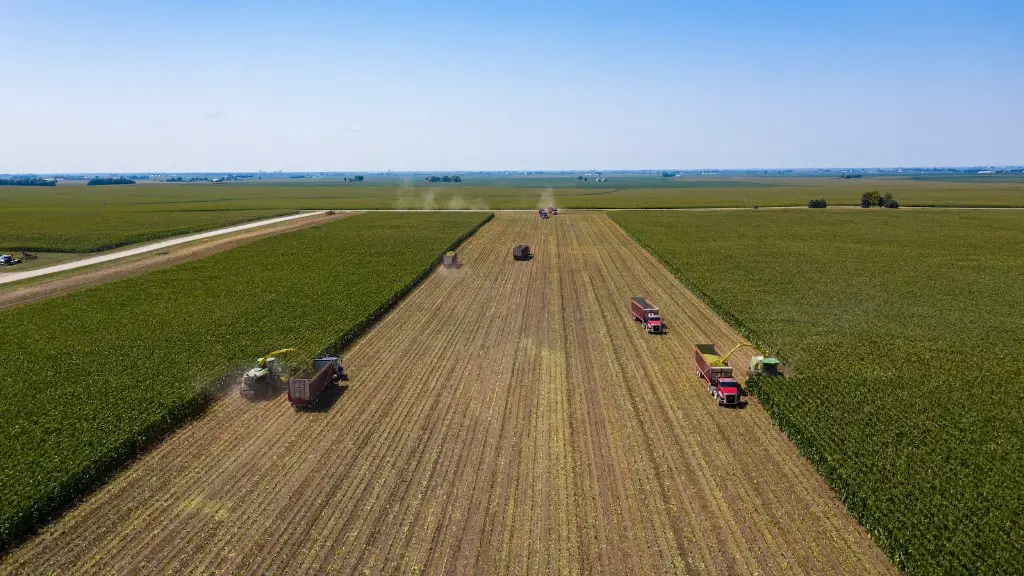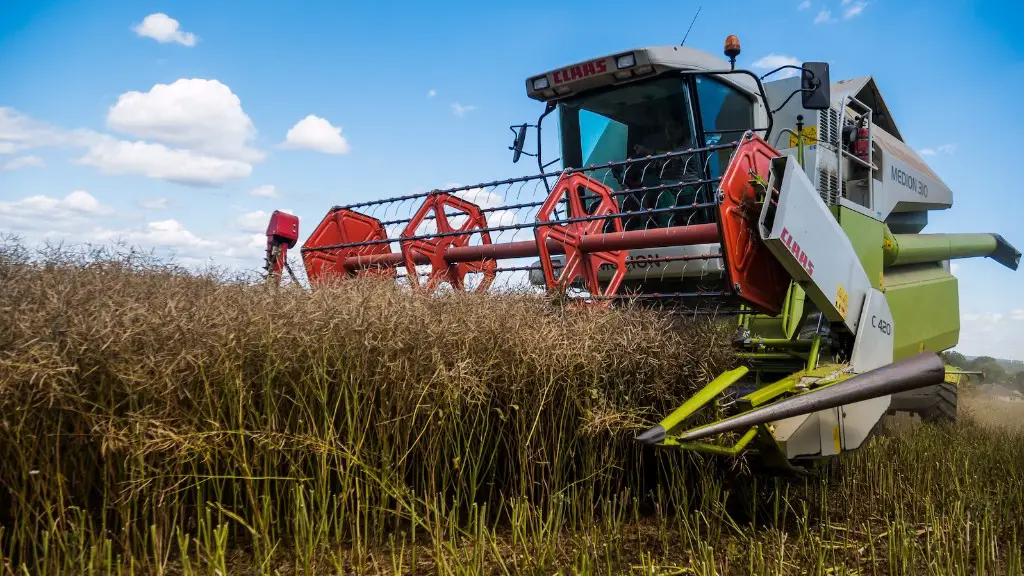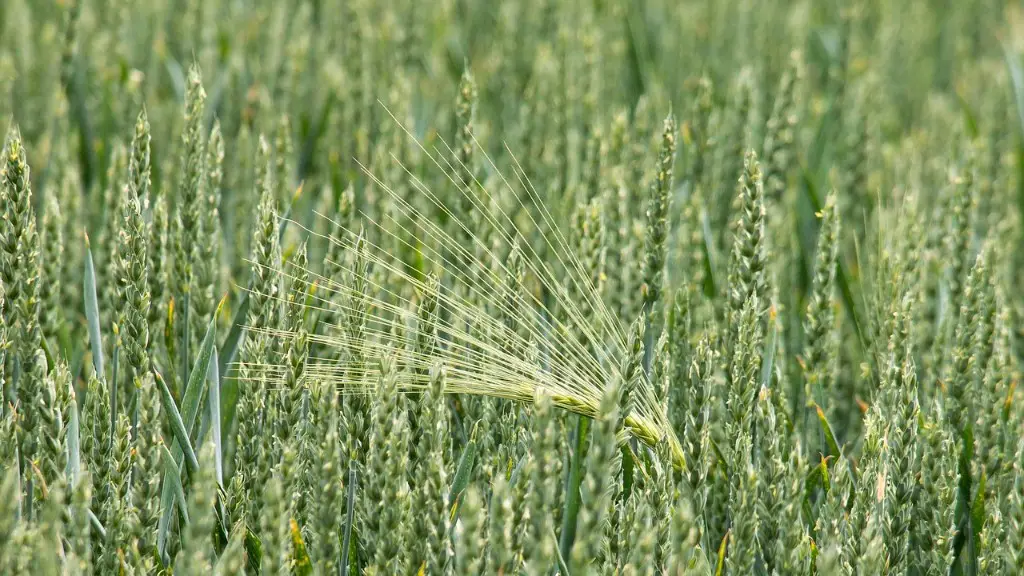Agricultural jobs are growing increasingly in demand as demand for food rises and the need for efficient production and distribution of food become essential. This article will discuss how to get an agricultural job, what skills and qualifications are needed and which sectors are most likely to be in demand. It will also explore potential career paths, different job types and industry sectors that offer employment in agriculture.
Getting an agricultural job requires much more than an agricultural-specific qualification. Employers are increasingly looking for someone with a comprehensive set of skills, such as problem solving, team working, communication and leadership. Knowledge of the food production industry, such as understanding the principles of crop production, is also highly desirable and often a prerequisite for working in this sector.
To secure an agricultural job, it is important to research the sector and the specific fields. You should also consider networking and looking for job opportunities by attending agricultural events, or joining relevant organisations. Employers will also be looking for evidence of any relevant voluntary work and internships, as this demonstrates commitment to the sector and knowledge of how it operates.
Once an applicant has gained a clear understanding of the scope of potential agricultural opportunities, they should begin to tailor their CV and cover letter to each individual position. It is important to research the company and their agricultural activities, so this information can be included in their application. Candidates should also make use of their networks, as these connections can provide access to new opportunities and allow them to learn more about different job roles.
Once the applicant has secured an agricultural job, it is essential to continue developing their skills and expertise. A thorough understanding of the industry, its structures and trends, is essential for progressing or advancing within the sector. Companies may also provide in-house training and offer progression up the career ladder, depending on the individual’s performance. Furthermore, further education, such as a postgraduate degree, can open up new areas of job opportunities.
Gaining Relevant Experience
Gaining relevant experience is essential in securing an agricultural job, as employers are increasingly looking for candidates who can demonstrate an in-depth knowledge of the sector. Attending agricultural events, or working with local farmers, can provide invaluable knowledge and experience that can be crucial for obtaining a role in this sector.
In addition, interested parties should take advantage of the range of online resources available, such as agricultural portals, blogs and online forums. These resources can provide useful information on current job opportunities and the skills required for particular roles. Networking, such as joining associations and attending job fairs, can also prove to be beneficial in finding suitable roles, or establishing connections with other professionals in the industry.
Completing internships is another great way of gaining experience and understanding how a business works in practice. This can also provide individuals with a practical insight into the sector and develop their skillset.
Lastly, when looking for specific roles, candidates can look at alternative sources such as start-ups and charities. These sectors may provide more opportunities than larger companies, as they are often in search of someone eager to learn and with enthusiasm and passion for the industry.
Different Types of Agricultural Jobs
Agricultural jobs come in many forms, ranging from farm management to agricultural engineering. These roles encompass the various activities that help produce and distribute food, such as the production of crops, forestry, food science and animal husbandry.
Therefore, before finding a suitable role, it is important to have a clear understanding of the various types of agricultural jobs and which one suits you best. Many roles are available in the public and private sector, in fields such as crop production, research, farming and fisheries. Contracted jobs on farms, such as shepherds and field workers, are also an option for those interested in working in the sector.
However, those more interested in management roles might consider the implementation of digital technology in the agricultural sector. These roles involve the implementation of systems, such as automation, that can improve efficiency and reduce costs.
Alternatively, some may be interested in agricultural marketing and communications, which is essential in this sector. Although these roles don’t necessarily involve field work, they do require an understanding of the food industry and a passion for the sector.
Lastly, jobs in the agricultural finance sector, such as banking and insurance, are another option for those looking for a career in the industry.
Gaining Qualifications for Agriculture Jobs
Most agricultural jobs require qualifications of some sort and the requirements will differ depending on the role. The minimum qualification is usually a degree in agricultural studies or related fields, such as environment or plant biology. Many employers look for candidates who have a postgraduate degree in agriculture or a related field.
Some roles may even require a specific certification or qualification, such as a forklift operator qualification for those looking for a warehouse or distribution centre job. In addition, some roles may require applicants to be multi-qualified, such as having competence in a range of agricultural systems and machinery.
Moreover, on-the-job training may also be necessary, depending on the role. This could involve shadowing an experienced employee, attending a specific course or completing a placement. Attendance of specific events may also be beneficial, such as training seminars or agricultural conferences.
Regulatory Bodies and Qualifications
Regulatory bodies such as the National Farmers Union, the Institute of Agriculture and Horticulture, and the Royal Agricultural Society all have specific qualifications that applicants must have in order to enter the sector. These qualifications vary from state to state, so it is important to check with the relevant industry body for each country.
Other organisations, such as the United Nations, may also provide specific training for those who wish to enter the agricultural industry. The United Nations offers courses in agricultural development, food security, and sustainability, all of which are important for those looking for jobs in this sector.
Agriculture is continually evolving with the introduction of new technologies, so it is important to be up to date with this information and any certification or qualifications that may be necessary. Furthermore, having knowledge of the sector’s regulations is essential, as employers are looking for someone who has the capacity to meet current standards.
Paid Internships and Summer Jobs in Agriculture
As well as full-time positions, internships, seasonal and apprentice career paths are also available in agriculture. These roles provide the perfect opportunity for individuals to gain experience in the sector, which can often lead to full-time employment or further study at a later date.
There are many internships and apprenticeships available to applicants, but they tend to be externally funded and therefore only last for a short period of time. Candidates should look for organisations who offer these types of positions, such as the National Trust, NFU and World Bank, as they will often provide financial support.
Summer jobs within the agricultural sector are also available, such as working on a farm or in a garden centre. Despite the seasonal nature of these jobs, they can still provide valuable experience to those looking to enter the sector in the future.
Additionally, students can look for part-time jobs in agricultural research or focus groups, or join an agricultural society or organisation. These extra-curricular activities can provide deep insight into the sector and may lead to opportunities for full-time jobs in the future.
Conclusion
Agricultural jobs are becoming increasingly in demand, with most employers looking for applicants with specific qualifications, experience, and a comprehensive understanding of the industry. Employers also require a well-rounded skill set, such as problem-solving and leadership.
Networking and attending agricultural events are important when looking for a job in this sector, as it can provide access to new opportunities and allow individuals to learn more. Furthermore, internships, apprenticeships and summer jobs within the industry are also a great opportunity to gain experience.
Finally, qualifications are essential when looking for an agricultural role and many roles require an up to date knowledge of the regulations and trends. Relevant qualifications can be obtained from a range of industry bodies, universities and regulatory organisations.





